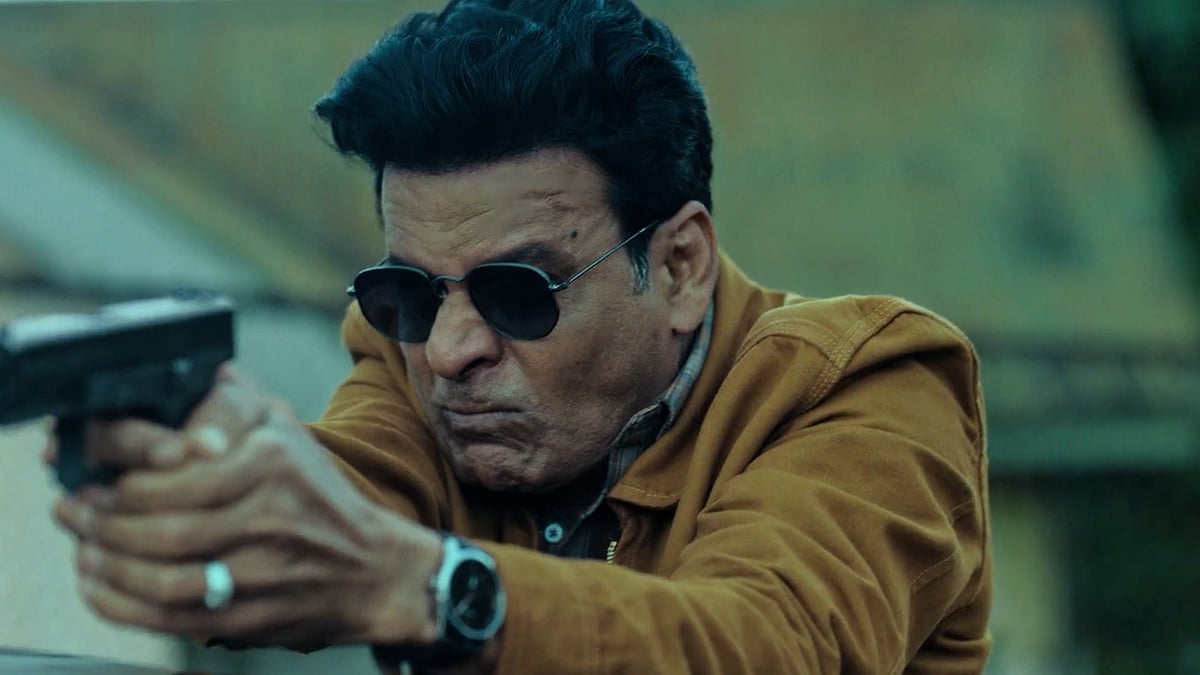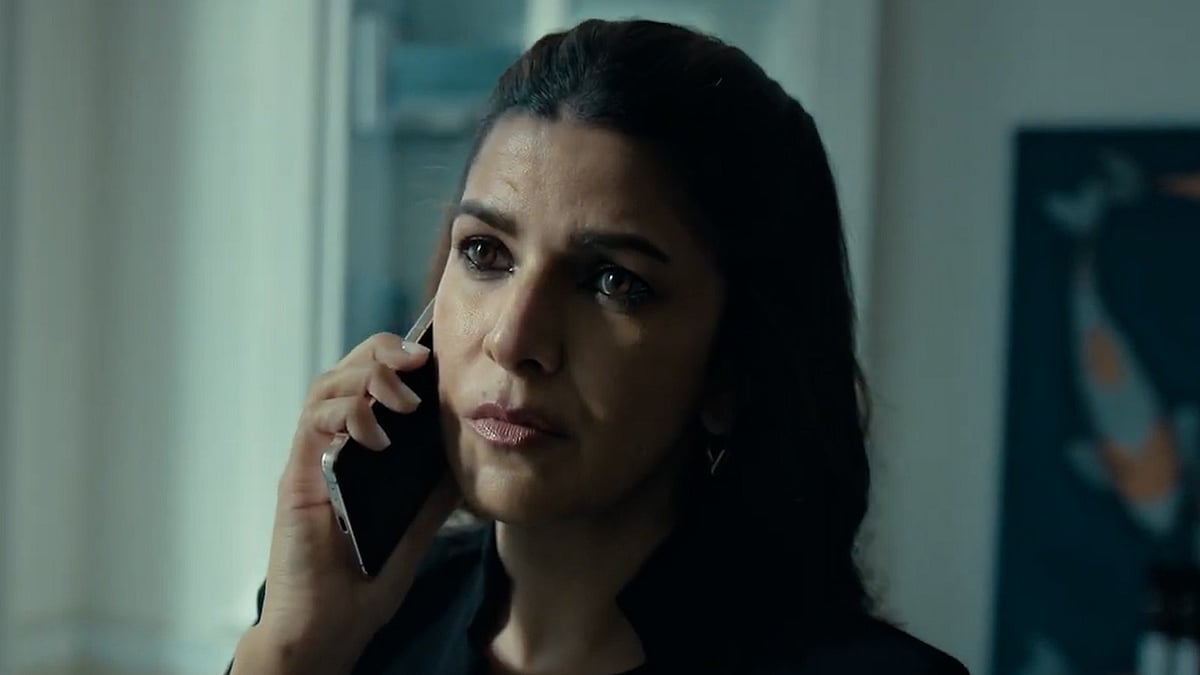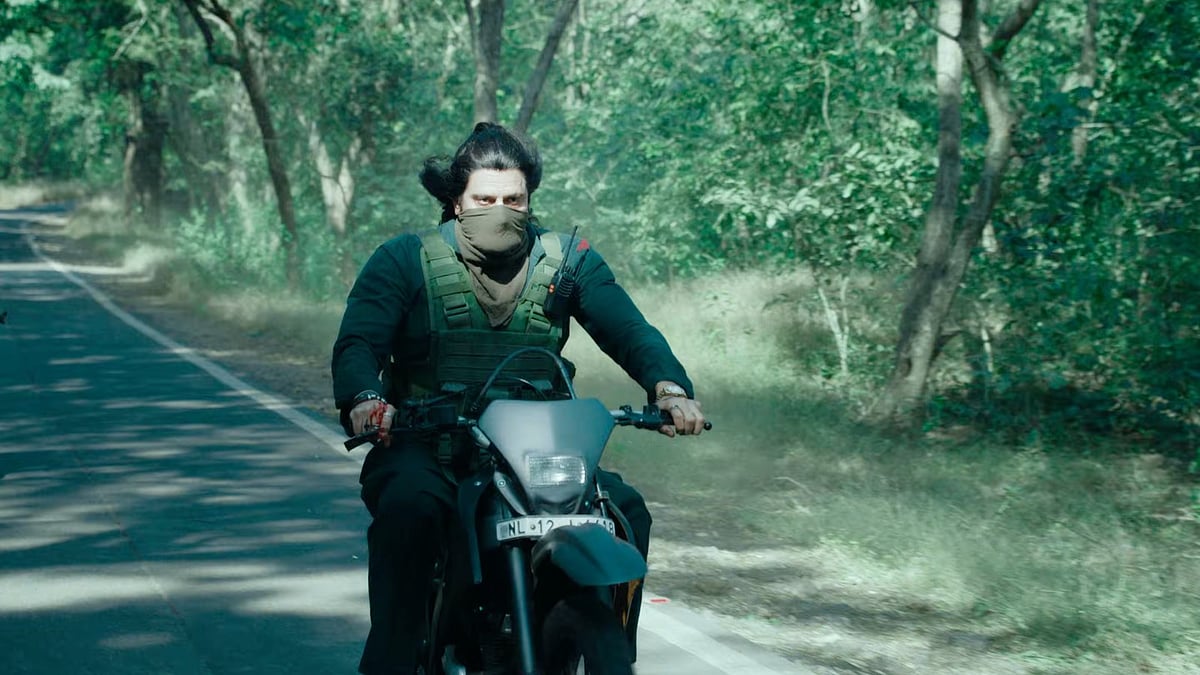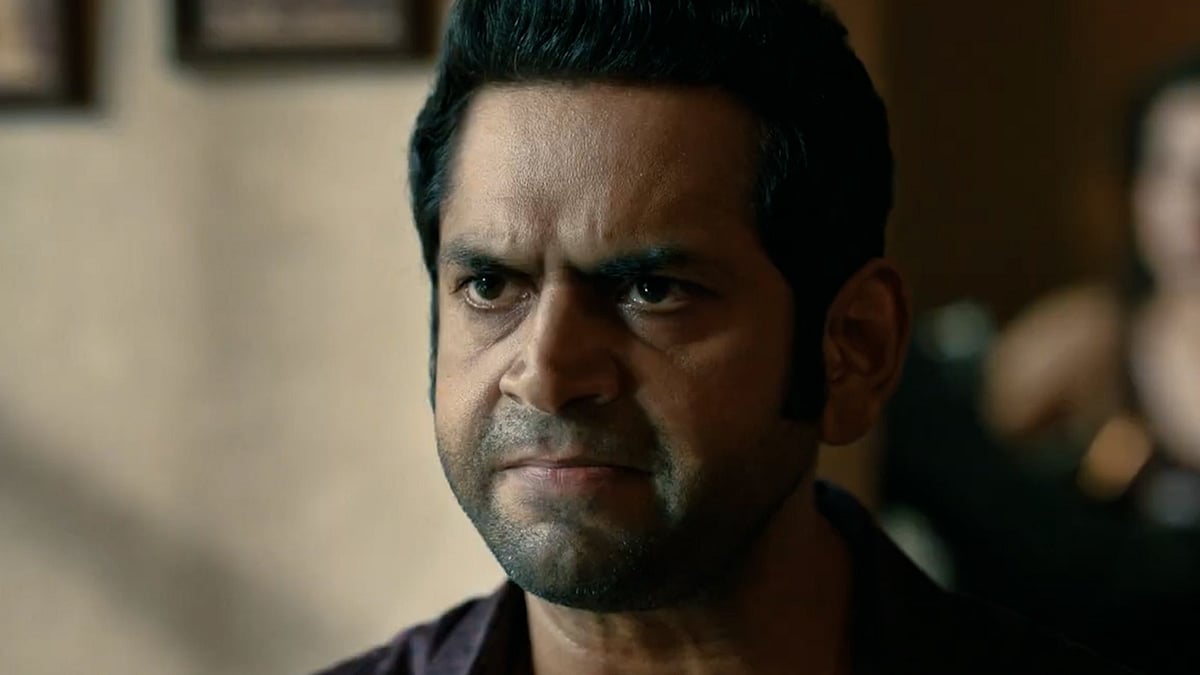The Family Man Season 3 opens in Kohima, Nagaland. Senior politician David Khuzou is optimistic about entering talks with India’s Central Government. “Finally, we have a PM who is focusing on peace and development in the region,” he says. Seconds later, a series of bomb blasts go off across six of the seven Northeastern states of India, starting with the cultural event that Khuzou is attending.
India’s favourite spy and bestie duo, Srikant Tiwari (Manoj Bajpayee) and JK Talpade (Sharib Hashmi) are back for another masterful season of television.
Created by Raj and DK, The Family Man is known for its skilful combination of exhilarating espionage action and quotidian family drama. Season 3 retains the show’s layered writing, witty dialogue, and thrilling action.
With other gems like Farzi and Guns and Gulaabs, this season further cements Raj and DK as distinct voices in the Indian OTT landscape.

Manoj Bajpayee returns as Srikant in The Family Man Season 3
Dialing Up the Tension
The first two episodes effectively set up this dense exposition. As the NIA starts investigating the blasts, its own convoy gets unexpectedly ambushed in a brutal attack. The prime suspect is Khuzou’s grandson, Stephen, leader of the rebel MCA-S Party, who opposes his grandfather’s appeasement of the Indian state.
However, the master orchestrator is actually Meera (Nimrat Kaur), a mysterious and affluent British-Indian woman, representing a group of billionaires called “The Collective” seeking to create unrest in the region. Long-time villain Major Sameer (Darshan Kumaar) helps her hire the ruthless drug dealer and hitman, Rukma (Jaideep Ahlawat), to carry out her attacks.
On the home front, Srikant and Suchitra’s marriage is on the brink of collapse, the divorce application is already filed. The jig is up, and Srikant’s lies have finally caught up to him; Suchitra and Dhriti (Ashlesha Thakur) now know about his real job.
JK, on the other hand, is desperately seeking a life partner and is navigating the dating and marriage market—a subplot that Hashmi makes equally hilarious and heartfelt. Zoya Ali (Shreya Dhanwanthary) is also back in TASC, but she seems to blame Srikant for Milind’s death in Season 1.

Nimrat Kaur as Meera in a still from The Family Man Season 3
A Reckoning for The Family Man
In this season, the walls between Srikant’s family life and work life crumble. I missed the tension and dramatic irony that came from that separation before, and defined the show’s seamless tonal variation.
However, it also raises the stakes further for Srikant and the series itself. By the end of the second episode, the conflict gets deeply personal for both Srikant and Rukma, and Srikant becomes enough of a hindrance to “The Collective” that they begin targeting him and his family.
What ensues is a reckoning of sorts, where Srikant grapples with the implications of his own actions: his crumbling marriage, endangering his family, and becoming a wanted criminal. In one poignant scene, Srikant reflects to JK on how wrong it was when they killed Kareem Bhat (from Season 1)—something he’s forced to confront now, being wrongly accused as an anti-national for a crime he didn’t commit.
Nuanced Character Development and Excellent Performances
While this is not sufficient accountability, it reflects the show’s maturity, self-awareness, and nuanced character development. It also helps that Bajpayee is excellent as Srikant, capturing his simultaneous heroism and everyman fallibility. Tiwari’s chemistry and bromance with JK will always be the best part of the show.
Even his marriage to Suchitra is sensitively rendered, showing both the hurt and betrayal, as well as mutual love and care between them.
The villain, like Moosa and Raji from previous seasons, is also complex and multi-dimensional. The makers build immense intrigue for Rukma: an ex-Bodoland People’s Front member-turned drug dealer who neither drinks nor does drugs himself.
There is duality to Rukma. He’s ruthless, yet charismatic, callous and also caring.

Jaideep Ahlawat as Rukma in The Family Man Season 3
Ahlawat plays this role with relish, balancing action with swag and rage. One moving subplot explores his hesitant embrace of fatherhood, but the screenplay sadly abandons it midway.
Under-Explored Subplots and Ambivalent Politics
In the same vein, The Family Man Season 3 leaves other several narrative threads dangling, from Dhriti’s mental health to Atharv getting bullied at school, to the plight of Suchitra’s company.
In this sense, this season doesn’t treat the drama as thoughtfully throughout, prioritising climactic action and cliffhangers over catharsis and resolution.
Equally ambivalent are the show’s politics. The series’ representation of the people and states in the Northeast is multifaceted; it even portrays rebels in a surprisingly sympathetic light, a welcome deviation from mainstream Indian cinema.
The show, however, remains frustratingly non-committal when mirroring present-day political circumstances. The Prime Minister struggles to respond to terror attacks in a sensitive region, reconciling the need to wait for reliable intelligence with the desire to project strength. “The Collective” uses “advanced spyware” and sponsors well-coordinated troll campaigns.
The government calls for a boycott of Chinese apps leading to mobs vandalising Suchitra’s office for being a “Chinese app”. Dhriti is suspended for being an “anti-national” for allegedly participating in political protests.
At the same time, the season also starkly deviates from reality, with a female PM who also takes press conferences and accepts criticism from the media. The show’s gaze is paradoxically perceptive and obfuscatory, flitting between realism and fantasy.

Sharib Hashmi as JK Talpade in The Family Man Season 3
A Propulsive Season
Raj and DK don’t leave much space for questions as the narrative propels forward, particularly in the final few episodes of the season. The action set pieces are exciting as always, with The Family Man’s signature handheld steadicam gliding through the most tense sequences.
This time, the show includes faster intercuts and smooth spatial transitions within action scenes. These are undeniably compelling, even though they don’t match the high points of prior seasons, particularly the iconic eight and 13-minute-long continuous takes.
Ultimately, The Family Man Season 3 is a fine example of consistently sophisticated storytelling that merges humor, emotion, and thrills. The series is in a league of its own, and the new installment can only be critiqued against Raj and DK’s existing high standards.
Season 3 of the series is now available to stream on Amazon Prime Video.
(Kaashif is a writer and film critic from Mumbai, currently based in London. He is the Assistant Culture Editor of The Polis Project.)
www.thequint.com (Article Sourced Website)
#Family #Man #Season #HighStakes #Thriller #Sharp #Political #Real
